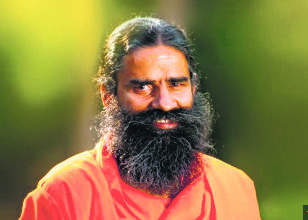‘Throughout my career at the bar I never once departed from the strictest truth and honesty. The first thing which you must always bear in mind, if you would spiritualize the practice of law, is not to make your profession subservient to the interests of your purse, as is unfortunately but too often the case at present, but to use your profession for the service of your country… The fees charged by lawyers are unconscionable everywhere. I confess, I myself have charged what I would now call high fees. But even whilst I was engaged in my practice, let me tell you I never let my profession stand in the way of my public service. . . . And there is another thing I would like to warn you against. In England, in South Africa, almost everywhere I have found that in the practice of their profession Lawyers are consciously or unconsciously ‹led into untruth for the sake of their clients. An eminent English Lawyer has gone so far as to say that it may even be the duty of a lawyer to defend a client whom he knows to be guilty. There I disagree. The duty of a lawyer is always to place before the judges, and to help them to arrive at, the truth, never to prove the guilty as innocent.”
INTRODUCTION
Mohandas Karamchand Gandhi was born to a Hindu family on 2nd October 1869, in Porbandar, Gujarat, India. He was the last child of Karamchand Gandhi, his father and his father’s fourth wife Putlibai. His father belonged to the merchant caste and he was a lawyer, an important government official. His early schooling was in nearby Rajkot, where his father served as the adviser or prime minister to the local ruler. India was then under British rule. His father died before Gandhi could finish his schooling. At thirteen, the young Gandhi was married to Kasturba [or Kasturbai], who was of the same age as himself.
JOURNEY AS A LAWYER
Mahatma Gandhi sailed for England on 4th September, 1888 to study law and become a barrister. He kept terms at the Inner Temple and after nine months’ intensive study he took all his subjects in one examination which he passed. He was called to the Bar on 10th June, 1891 and was enrolled in the High Court of England the next day. A day later, he sailed home. After his return to India he started practice as a lawyer at first in the High Court at Bombay and a little later in Rajkot but did not make much headway in the profession. It was only when the hand of destiny guided his steps to South Africa that he soon made his mark there as a lawyer and as a public worker. Gandhiji practised as a lawyer for over twenty years before he gave up the practice of the profession in order to devote all his time and energy to public service. The valuable experience and skill that he acquired in the course of his large and lucrative practice stood him in good stead in fighting his battles with the South African and British governments for securing political, economic and social justice for his fellow countrymen.
He enrolled in the High Court of London; but later that year he left for India. For the next two years, Gandhi attempted to practice law in India, establishing himself in the legal profession in Bombay. Unfortunately, he was not successful in establishing himself as a successful lawyer in India as he lacked the knowledge of the Indian Laws. The other reason for his failure in the Indian Bar was his lack of confidence in the practice. His practice collapsed and he returned home to Porbandar. Few days later an Indian business firm situated in the Transvaal (now Gauteng), South Africa offered him employment. He was to work in South Africa for a period of 12 months for a fee of £105.00.
It was Dada Abdulla’s case which enabled Gandhiji to realize early in his career the paramount importance of facts. As he observes in his autobiography “facts mean truth and once we adhere to truth, the law comes to our aid naturally”. Facts according to Gandhiji constituted three-fourths of the law and if we took care of the facts of a case the law would take care of itself. As a result of this realization of the paramount importance of facts in Dada Abdulla’s case, Gandhiji was never known afterwards to brush aside or slur over a fact however inconvenient or prejudicial it might seem. Strict adherence to this principle enabled him more than once in a crisis to find a way out of what to all intents and purposes looked like an impenetrable ring of steel.
Read the conclusion on TheDailyGuardian.com.










